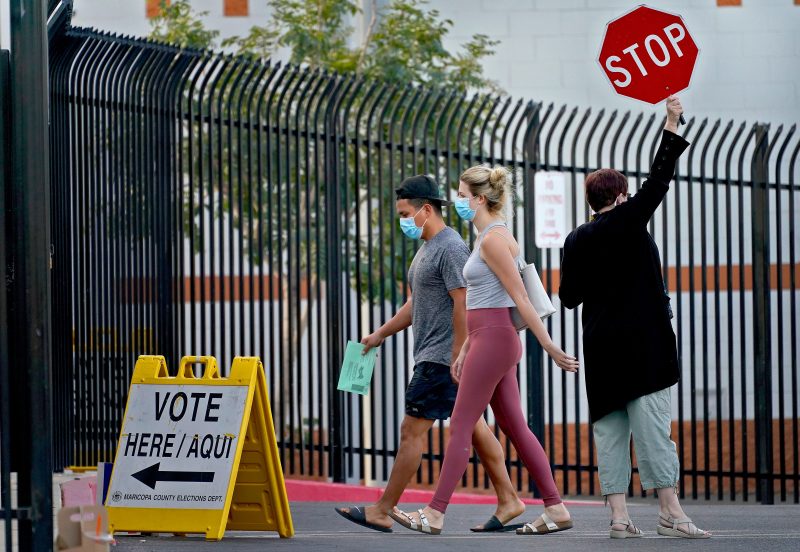
Protecting Our Schools: Why Arizona Doesn’t Want Them as Polling Locations Amid Voting Challenges
With Voting Under Attack, Arizona Schools Don’t Want to Be Polling Locations
The issue of safeguarding the integrity of the voting process has become increasingly critical in recent times. As attacks on voting rights and election integrity continue to threaten the democratic process in the United States, various institutions are reevaluating their involvement in facilitating voting access. One such entity facing this dilemma is schools in Arizona, which are now reconsidering their role as polling locations.
Schools have traditionally served as polling locations due to their central locations within communities and their accessibility to voters. However, recent events, including the push for restrictive voting laws and the rise of intimidation tactics at polling sites, have raised concerns among school officials about the safety and security of hosting elections on their premises.
One of the primary reasons schools are hesitant to continue serving as polling locations is the potential for disruptions to the educational environment. With tensions running high during elections and the possibility of confrontations or disturbances at polling sites, schools fear that these events could negatively impact students and staff, as well as disrupt the normal school day.
Furthermore, the safety and security of students and staff are paramount concerns for school administrators. By opening their facilities to the public on election days, schools are exposed to potential security risks and unforeseen incidents that could jeopardize the well-being of those on campus. In an era where school safety is a top priority, the decision to discontinue hosting elections is a proactive measure to mitigate potential threats.
Another factor prompting schools to reconsider their role as polling locations is the logistical challenges and disruptions that elections can cause. Setting up polling stations, accommodating a large number of voters, and managing traffic flow on election days can strain school resources and disrupt the normal operations of the institution. With limited resources and staff, schools face practical difficulties in managing the additional demands that come with hosting elections.
Additionally, schools are increasingly concerned about the politicization of the voting process and the impact it can have on the educational environment. By distancing themselves from hosting elections, schools aim to maintain a neutral and nonpartisan stance, ensuring that their primary focus remains on providing quality education to students without being embroiled in political controversies or conflicts.
Despite the challenges and concerns associated with serving as polling locations, schools in Arizona are exploring alternative options to ensure that voters have convenient access to polling sites. Collaborating with community centers, local government facilities, or other public venues can provide voters with alternative locations to cast their ballots without compromising the safety and security of school campuses.
In conclusion, the decision of Arizona schools to step back from serving as polling locations reflects a broader trend of institutions reevaluating their involvement in the electoral process amid growing concerns about election integrity and safety. By prioritizing the well-being of students and staff, maintaining a neutral stance, and addressing logistical challenges, schools are taking proactive steps to navigate the complexities of modern-day elections while upholding their commitment to education and community service.
